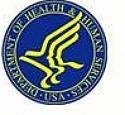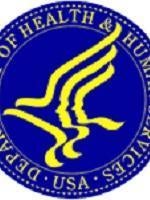The U.S. Department of Health and Human Services today awarded more than $352 million to continue improving disaster preparedness of hospitals and health care systems within every state, and three large metropolitan areas.
These Hospital Preparedness Program (HPP) grants support preparedness activities for hospitals and health care facilities, including the medical surge capability in communities across the nation.
“We want every community to be prepared and resilient when faced with any type of health hazard and we’ve seen preparedness steps pay off this year across the country with severe storms, floods, and tornados,” said Dr. Nicole Lurie, assistant secretary for preparedness and response whose agency oversees HPP. “State health officials have attributed their ability to respond as well as they have to the preparedness levels they’ve reached through the HPP and other federal programs.”
For example, after a tornado demolished a hospital in Joplin, Mo., the state’s disaster medical assistance team and hospital staff set up a mobile medical unit at the hospital site. The state purchased the mobile medical unit using HPP and other federal funds, and the unit will serve as the community’s hospital until a new hospital can be built.
Grant recipients use the HPP funds to employ experts who have developed and maintained preparedness plans and to purchase equipment, including mobile medical units and equipment to communicate with local emergency responders. HPP funds have been used to train and educate staff on disaster response, including the National Incident Management System, which provides a standardized management structure for disaster response. Grant recipients are required to test this capability through disaster exercises.
Using HPP funds, grant recipients put systems in place to track the number of hospital beds available which helps hospitals handle a surge of patients after disasters, as well as systems to register volunteers. The funds also support planning, training and exercises for evacuating facilities, for sheltering patients and staff in place, and for managing mass fatalities. In addition, HPP funds may be used to purchase pharmaceutical caches for use during an emergency response.
HPP encourages grant recipients to develop health care coalitions with other hospitals and health care systems, community businesses and non-government organizations which can support a facility in caring for patients.
Additional HHS funding for state and local preparedness activities is expected to be released in August through the Centers for Disease Control and Prevention’s Public Health Emergency Preparedness cooperative agreement program (PHEP). PHEP funds help to prepare public health systems for emergencies. The grants focus on 15 public health capabilities, such as strengthening public health surveillance and epidemiological investigation, emergency public health information and warning capability, medical countermeasure dispensing, public health laboratory testing, and responder safety and health.



 />i
/>i

